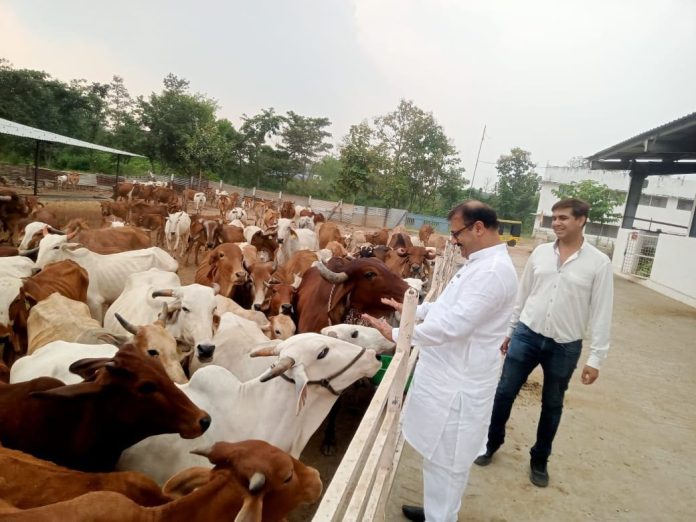As Eid al-Adha approaches on June 7, the Maharashtra Goseva Ayog has directed all Agriculture Produce Market Committees (APMCs) across the state to suspend livestock markets from June 3 to 8. The decision, communicated through a circular dated May 27, has stirred widespread criticism, especially from political groups and members of the affected communities, reported the Free Press Journal
The circular, issued by the Goseva Ayog—a state commission focused on the welfare of indigenous cows—cited concerns over illegal slaughter of bovines ahead of the Muslim festival, which traditionally involves the ritual sacrifice of animals such as goats and sheep. The order aims to prevent potential violations of the Maharashtra Animal Protection (Amendment) Act, 1995, which enforces a complete ban on the slaughter of cow progeny.
The directive stated that “no livestock markets (gura bazaar)” should operate in villages across the state from June 3 to 8. It also called for heightened vigilance to ensure compliance with the Maharashtra Animal Preservation Act, which criminalises the slaughter of cows, bulls, and bullocks, as well as possession of their meat.
However, the move has been sharply criticised by the Vanchit Bahujan Aghadi (VBA), which has called it an “injustice” to small traders and an attack on the livelihoods of farmers, transporters, and the Khatik-Qureshi (butcher) community. The VBA argued that while action against illegal cattle slaughter is justified, closing down all livestock markets—including those for animals like goats and buffaloes, which are not banned—goes beyond the law.
“This letter is against the interests of farmers, labourers, middlemen, and small businessmen,” said VBA state spokesperson Tayyab Zafar. “It will directly impact livelihoods and is a clear overreach of authority.”
Zafar further alleged that the Goseva Ayog, being only an advisory body, does not have the power to issue binding instructions to administrative bodies like APMCs. “This is an abuse of power and a violation of constitutional limits,” he said.
He also criticised the unequal enforcement of the law, pointing out that while buyers and transporters are often penalised, sellers are rarely prosecuted. “If the law is to be applied fairly, sellers must also be held accountable,” he noted.
Additionally, Zafar flagged concerns over the misapplication of laws during inter-district transportation of livestock, which he said does not fall under the purview of Section 5-A of the Act.
In response to the growing backlash, Shekhar Mundada, Chairman of the Goseva Ayog, clarified that the directive was intended only to prevent potential cow slaughter during the days preceding Eid. He stressed that the circular is meant as an “advisory” and not a mandatory order. “The stoppage of sale of other animals will happen only for a week,” he said.
Maharashtra currently has 305 principal and 603 secondary APMCs, all regulated by the Maharashtra State Agricultural Marketing Board. Of the 292 livestock markets operating in the state, nearly all fall under APMC oversight.
Political leaders and community representatives continue to demand immediate withdrawal or revision of the circular, arguing that it threatens livelihoods under the guise of cow protection.




